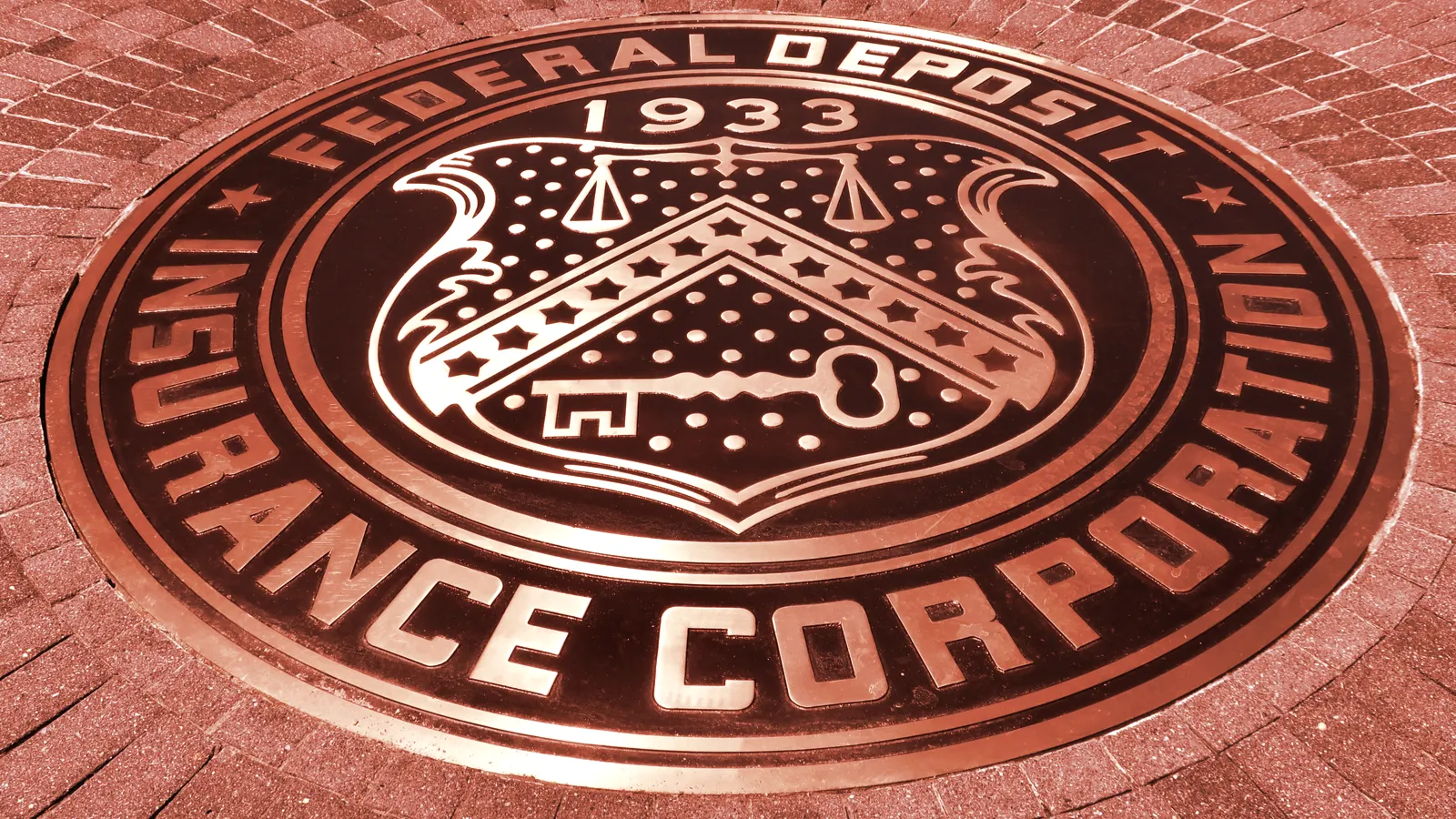We do the research, you get the alpha!
The Federal Deposit Insurance Corporation (FDIC) has said that crypto—and specifically the risks involved in the crypto industry—will be a priority area of focus for 2022.
“The rapid introduction of a variety of crypto-asset or digital asset products into the financial system could pose significant safety and soundness and financial system risks,” FDIC Acting Chairman Martin J. Gruenberg said in a statement yesterday.
The FDIC is an independent agency created by Congress to provide deposit insurances for savings and commercial banks in the United States. The organization was put in place during the great depression to help restore public confidence in the banking system.
“It is imperative that the federal banking agencies carefully consider the risks posed by these products and determine the extent to which banking organizations can safely engage in crypto-asset-related activities,” added Gruenberg.
In addition to evaluating the risks behind the crypto industry, the FDIC will focus on financial risks posed by climate change, review the bank merger process, strengthen the Community Reinvestment Act and finalize the Basel III Capital Rule, which aims to “strengthen the regulatory framework” for large banking organizations.
FDIC’s recognition of crypto-related risks follow a similar line of thought prevalent across many other regulatory and law enforcement agencies in the United States.
The US, crypto and regulations
FDIC—like many others—is concerned that the crypto industry could pose risks to the wider financial system.
Securities and Exchange Commission Chairman (SEC) Gary Gensler has said similar, repeatedly making the case for more robust consumer protection laws applicable to the crypto industry.
He has also openly opined about the possibility of decentralized finance (DeFi) running rife with unregistered securities.
In Washington, D.C., Senator Elizabeth Warren (D-MA) has said the crypto industry needs “rules of the road,” and that crypto puts the financial system in the hands of “shadowy super-coders.”
A recent investigation by Decrypt has found that the Biden Administration’s crypto strategy aims to use federal agencies to target stablecoin issuers like Tether, and Circle.
“It’s a very thought-through doctrine about how to stop the crypto industry from growing too fast and too much,” said Maya Zehavi, crypto entrepreneur and investor who has previously advised regulators.
Rest of the world
The Bank for International Settlements (BIS) and IOSCO securities regulators have also weighed in on the crypto industry.
In October last year, both organizations collectively said stablecoins ought to follow the same rules as traditional payments.
Just before Christmas last year, the Bank of England also warned—like the FDIC—that the cryptocurrency industry could pose a threat to the established financial system.
“The point, I think, at which one worries is when it becomes integrated into the financial system when a big price correction could really affect other markets and affect established financial market players,” Sir Jon Cunliffe, deputy bank governor, told the BBC at the time.
“It’s not there yet, but it takes time to design standards and regulations,” he said.





